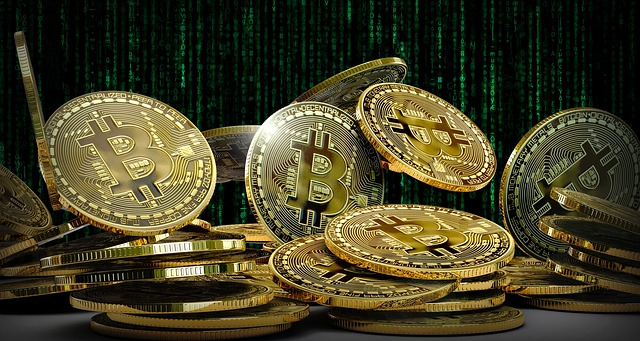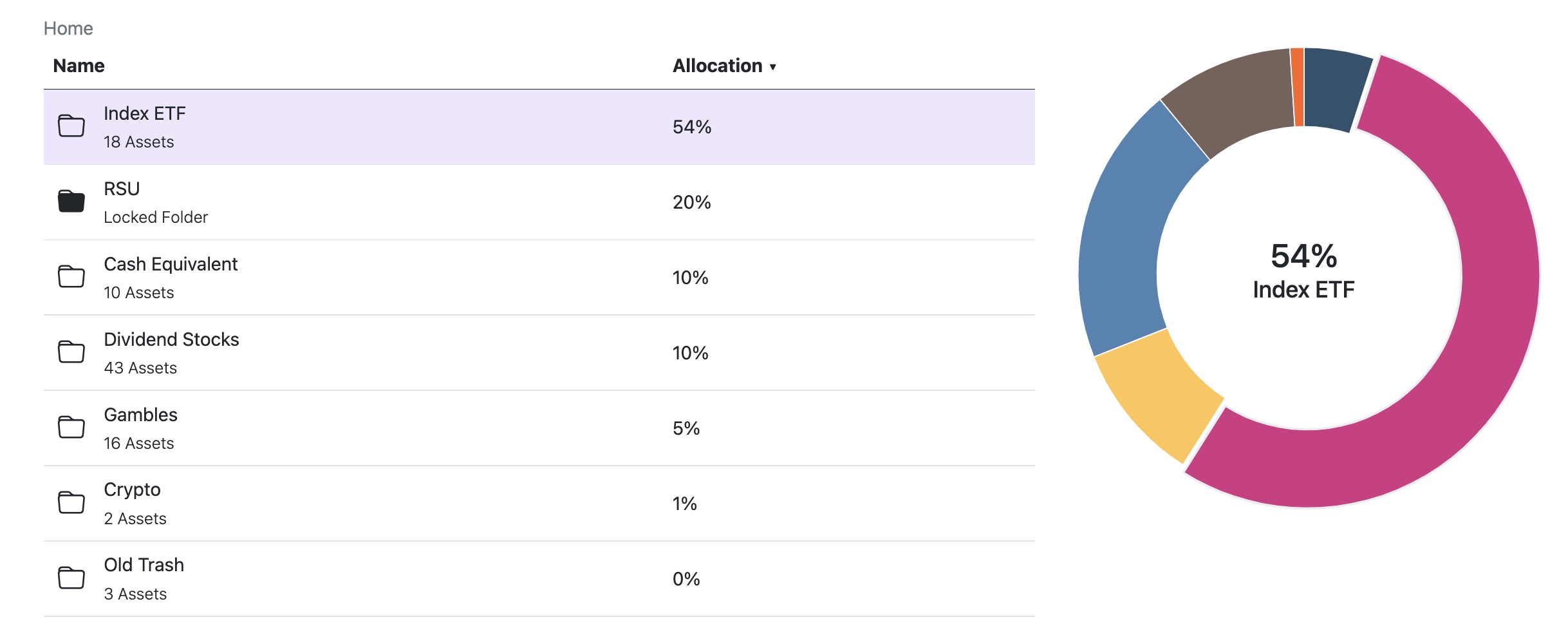I remember hearing about Bitcoin for the first time back in 2010 when some poor sap made the deal of his life and bought two pizzas for 10,000 bitcoins.
It was the first recorded transaction of Bitcoin for goods.
I remember thinking to myself, “This is curious, I should probably get into it at some point” and then quickly forgetting about it.

Since then, every year or so, I would hear about it once again, once in an episode of “The good wife” in 2012 , once more in the news a year later, every time with a higher valuation, a growing community and hype.
Eventually, back in 2017, it was clear to me that “that ship has sailed” as Bitcoin reached a valuation of nearly $20,000 for a single coin, I remember thinking about all of those bag holders that are buying 🌷tulips🌷 for an inflated price and are about to lose their money…
I was right! Bitcoin started falling quickly, eventually bottoming at around $3,000 during 2018.
2017 was the ICO year, it all seemed very promising with coins popping up left and right and money was flowing into the cryptoverse in buckets.
However, during 2018, it was found that many of these ICOs were flat out scams or rug pulls. Also, the hype has run its course and people have lost interest.
As a result the money flow started to dry up and it caused the valuation of all crypto coins to drop significantly.
But that was only a momentary moral victory.
With the rise of smart contracts, and more and more evidence of utility of crypto currencies, Bitcoin, Ether and other major crypto currencies started to climb back up to higher and higher valuations.
Today, after dropping from the peak a few months ago, Bitcoin is still valued at around $42K.
Had I bought (or mined - yes it was possible back then) 100 Bitcoins back in 2010 when it would have cost me a negligible amount, those 100 Bitcoins would be worth $4.2 million dollars. I don’t dwell too much on the past. I guess that pizza guy might…
I changed my mind
My view is different nowadays, while Bitcoin is still highly volatile, I think it has utility and is not just a hot potato that is simply passed on to the greater fool.
Today, people actually use Bitcoin to transfer wealth to countries where the monetary system is very expensive and is a bit broken. It is also the gateway for people to move in and out of currencies that have utility in a different way, whether it is Ether that is used to pay gas money on the Ethereum network, or Tether that stays with the value of the US Dollar but enables individuals to hold it without having to rely on their bank (think about the majority of people in the world that don’t enjoy the benefits of a thriving democracy).
Also, with the rise of DeFi, we are talking about a brand new financial system.
In a way, this is somewhat similar to the Dot-com bubble of the early 2000.
While 99% of the early dot-com businesses were flat out garbage, over time, the industry matured and ended up completely changing our economy and the world we live in.
So with that, I no longer think that Bitcoin is similar to tulips in the Netherlands a few centuries ago.
I firmly believe that it is a worthy investment and may provide significant returns over the years.
So why do I still avoid investing in Crypto Currencies directly?
I find it cumbersome
Being a Software Engineer, I am inherently lazy.
I like things that are simple and follow the path of least resistance.
When writing software, a piece that is unnecessarily complicated tends to be harder to maintain, harder to stick to, and eventually requires refactoring in order to reduce the overhead involved with interacting with it.
I feel the same way about investing,
- I like having a single interface that holds all of my investments.
- I don’t need to worry about security, my financial institution is the one worried about it.
- I can easily make transactions to buy or sell assets without needing to trust third parties, varying conversion fees, and multiple institutions - my financial institution does all of that for me in a single place.
Banking bureaucracy
In many cases, transferring funds into and out of crypto exchanges can be difficult as many banks simply place additional hurdles before approving these transactions.
They say that they are concerned with money laundering, perhaps that’s a good excuse, but it requires me to make a serious effort when I wish to move funds in and out of crypto.
So they definitely succeeded in pushing me away from it.
Also, each transaction will require multiple phases:
- Phase 1: Moving funds from my bank account to a crypto exchange.
This is actually a multi-phase because it requires some effort on the crypto exchange side to make sure the funds are properly assigned and make it into my account. - Phase 2: Making the request from the exchange to convert my funds to my desired crypto currency.
- Phase 3: Moving my crypto balance from my exchange wallet to my private wallet.
(preferably cold storage) in order to make sure that my investment is safe.
Each phase requires my focus and attention and is mistake prone, on top of probably having costs associated with it.
For me, the lack of central authority is actually a downside
This is a big one.
I live in a free country, financial institutions are regulated, and I trust my government, as incompetent as it is at times, to try to look after my interests in general.
As such, I have more confidence in a heavily regulated, insured financial institution to keep my money and investments safe, than I trust myself.
There are so many stories of people misplacing or losing their private key, getting hacked or scammed out of their crypto balance and so on.
When that happens in crypto, my money is gone and there is no way to get it back.
If my bank/broker gets hacked, it is usually their problem, not mine. I have never heard of a bank customer losing their portfolio or balance due to a bank hack or a fraud.
If I forget my account password, I can call them or go to a physical branch, identify myself and they will be happy to recover my password for me.
If I mistakenly made a transfer to the wrong address or if someone managed to hack my personal account and make a transfer, I have up to three days to get the bank to reverse the transfer and reclaim my funds.
I guess that the bottom line is: I trust my bank to keep my money safe better than I trust myself.
Taxation
This one varies on your citizenship as crypto taxation rules vary from being very well defined to a complete unknown in some countries.
My country of residence is at the unknown side of the chart, and being a lazy animal, I would rather avoid spending the time and effort trying to figure out how to pay, and how much to pay when the time comes to submit my annual report to the government.
I have decent alternatives
Most of my investments are very passive, I am a long term investor at heart and the majority of my funds is allocated towards large, diversified indices which I never sell.
However, I do allow myself to speculate with a very small portion of my portfolio, and there, I find an abundance of high-risk-high-reward stocks.
The NYSE & NASDAQ alone have approximately 6000 companies to choose from, and they come in all sizes and shapes.
You are welcome to check out my portfolio allocation which I publicly share using Donatello to see exactly how my strategy is set up.
In a way, I still invest a very small portion of my capital in crypto
If you have taken the time to check out my portfolio in the link I shared, you may have noticed that I do have a “Crypto” folder with two index funds that invest in Bitcoin and Ether.
I would first say that it is a very inefficient way to invest in crypto as these funds take outrageous expense fees, and they are also bound to tracking faults because of the way they are set up.
I chose to place a negligible amount in them, just to feel like I have some skin in the crypto game.
I’m fine with being inefficient with this amount, as long as I don’t have to worry about taxation, regulation, losing my account etc.
In conclusion
I do believe that even though there are still a lot of issues with this space, crypto currencies have proven to have a place in the financial system.
I do think that they have utility and provide value, and that this story is still unfolding. Over time the technology around them will continue to evolve and provide value for humanity.
However, as an investor I still don’t think that there’s a good enough reason for me to invest in crypto directly given the hassle involved and the alternatives available.
Disclaimer: The above is not financial advice and is not a call to action.
Financial advice can only be given by a certified professional that is familiar with the specific situation of the person receiving said advice.
